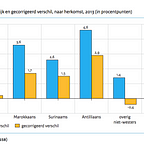Relevant international resolutions/recommendations
In addition to relevant texts from the European Commission against Racism and Intolerance (ECRI), there are some relevant statements from other international institutions:
European Parliament resolution of 14 March 2017 on fundamental rights implications of big data: privacy, data protection, non-discrimination, security and law-enforcement (2016/2225(INI)), consideration 5:
“Union law on the protection of privacy and personal data, the right to equality and non-discrimination, as well as the right of individuals to receive information about the logic involved in automated decision-making and profiling and the right to seek judicial redress are applicable to data processing when processing is preceded by pseudonymisation techniques or, in any case, when the use of non-personal data might impact on individuals’ private lives or other rights and freedoms, leading to the stigmatisation of whole groups of the population”.
Framework Convention for the Protection of National Minorities (FCNM), article 3 (FCNM is a multilateral treaty of the Council of Europe):
“Every person belonging to a national minority shall have the right freely to choose to be treated or not to be treated as such and no disadvantage shall result from this choice or from the exercise of the rights which are connected to that choice”.
Principle 1 of Appendix to Recommendation No. R (97) 20, adopted by the Council of Europe, Committee of Ministers on 30 October 1997 at the 607th meeting of the Ministers’ Deputies. Repeated in: Council of Europe, “Human Rights in Culturally Diverse Societies”, Strasbourg: Council of Europe Publishing (2016), consideration 197:
“the governments of the member states, public authorities and public institutions at the national, regional and local levels, as well as officials, have a special responsibility to refrain from statements, in particular to the media, which may reasonably be understood as hate speech, or as speech likely to produce the effect of legitimising, spreading or promoting racial hatred, xenophobia, anti-Semitism or other forms of discrimination or hatred based on intolerance”.
Document of the Copenhagen Meeting of the Conference on the Human Dimension of the CSCE, Organization for Security and Co-operation in Europe (OSCE), 29 June 1990, § 32:
“To belong to a national minority is a matter of a person’s individual choice and no disadvantage may arise from the exercise of such choice”.
UPDATE:
In September 2021, the European Commission published the ‘Guidance note on the collection and use of equality data based on racial or ethnic origin’ (Directorate-General for Justice and Consumers, Directorate D – Equal Opportunities Equality and Union citizenship Unit D1 - Non-discrimination and Roma coordination, High Level Group on Non-discrimination, Equality and Diversity, Subgroup on equality data). In the preamble, this Guidance note says:
“To make informed policy choices for countering discrimination and fostering equal treatment, legislators and policymakers need data on people’s social positioning and experiences of racism and discrimination based on racial or ethnic origin.
However, introducing categories such as ‘racial or ethnic origin’ in official statistics bears the risk of such categorisations being socially reproduced and used to incorrectly label people. This can have negative consequences for members of certain social groups, stemming from the biased (potentially stereotypical) belief systems that such social categorisation can support.
To address this, the use of statistical (analytical) categories for any data collection or for the purpose of data disaggregation should always be led by the overriding human-rights based principle of doing no harm, as proposed by the UN High Commissioner for Human Rights (OHCHR) in its Human Rights-based Approach to Data.
Doing no harm means that no data collection activity should create or reinforce existing discrimination, bias or stereotypes and that the data collected should be used for the benefit of the groups they describe and society as a whole”.
UPDATE:
On 10 November 2022, the European Parliament adopted a resolution:
European Parliament resolution of 10 November 2022 on racial justice, nondiscrimination and anti-racism in the EU (2022/2005(INI)).
§23 of this resolution:
Calls on all EU Member States to collect comparable and robust disaggregated equality data, in order to fully understand and to document discrimination, analyse social problems, and tackle inequality holistically, based on voluntary participation, self-identification and informed consent, while protecting anonymity and confidentiality, ensuring community participation in the definition of categories, analysis and evaluation, respecting the key principles of EU data protection legislation and fundamental rights and complying with national legislation; calls on the Commission to continue developing a common methodology on this with Member States in order to ensure the comparability, accuracy and reliability of the data collected; supports the FRA’s work on analysing this data and welcomes further developments in this field, in line with its new mandate and through structured and close cooperation with justice and home affairs agencies and affected groups;
